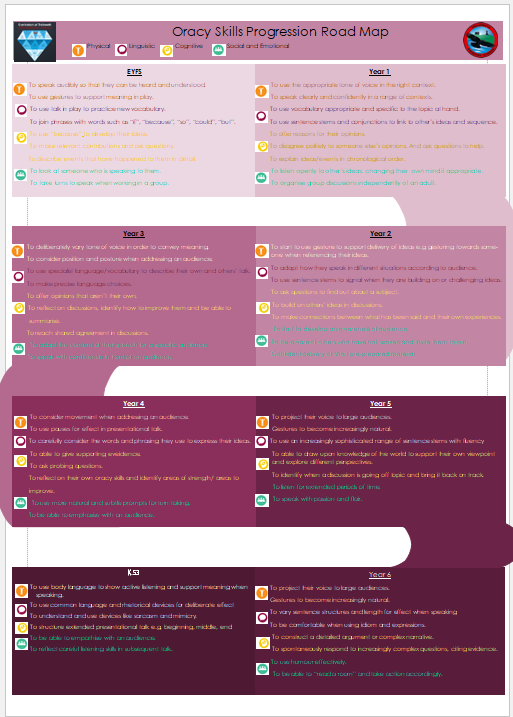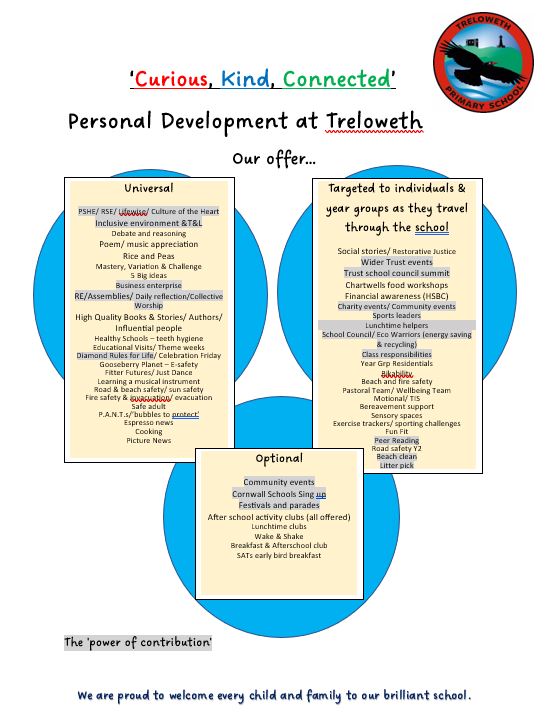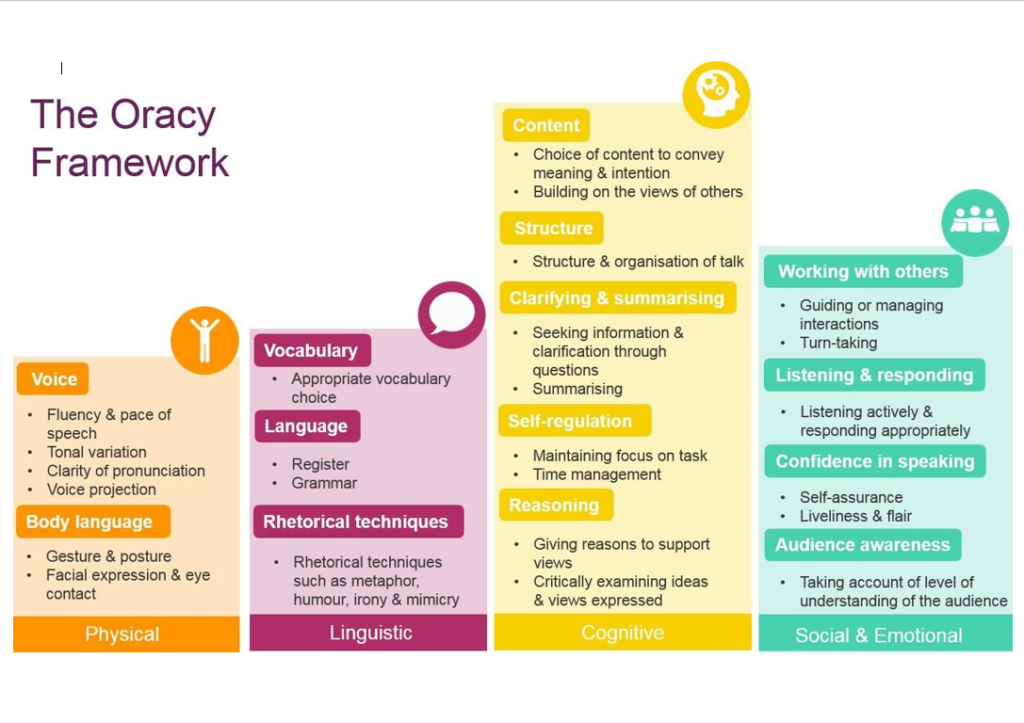Pupil Development



At Treloweth we believe in developing the whole child and as such we place high importance on fostering pupils’ spiritual, moral, social and cultural development.
Supporting children’s emotional health and wellbeing is one of the most important aspects of our role and therefore, have chosen to have one full-time non classed based behaviour champion, a Designated Safeguarding Leader and a Special Educational Needs/Inclusion Leader who work together to form our pastoral team in partnership with the Well-being Pastoral Leader. This team works with individuals and groups of children to support their emotional wellbeing, helping children to build confidence and resilience.
Our curriculum framework is strategically planned to ensure that throughout their years of learning, children learn about social justice and the power of positive contribution. This is achieved through ensuring both are carefully woven throughout our curriculum.
Our explicit curriculum teaching and the school’s strong culture were used to form our Diamond Rules, these help children to learn to follow the British Values, thus preparing them to be successful in modern British society.
In assemblies, educational visits, discussions, and literature, children have the opportunity to learn more about the world/country/county/town in which they live, and the people that make up our community. Through our PSHE curriculum, children learn about healthy relationships and the diversity of relationships; this learning is carefully sequenced and planned to ensure it is not only progressive but also age appropriate.
We also teach PSHE and SRE across all year groups; these areas of learning are both sequential and progressive. Children learn about people of different faiths and cultures, along with how to keep themselves safe from harm, including keeping safe online. Throughout their learning children are encouraged to share their views, listen carefully to others and respect and understand that others’ views may differ from their own, along with developing a thirst and fascination about their community and the world around them.
Children are keen to take on roles of responsibility. These roles are progressive and start with playing an active role in their class as monitors and develop to taking a wider active role across the school as Play Leaders, Eco Warriors and School Councillors. Children learn to become active citizens and contribute positively to Treloweth and the wider community.
The school offers a wide selection of extra curriculum activity clubs which are very popular with the children. Every child who wants one, is offered a club. We strive to ensure there is a club to pique the interest of every learner. The take up of PP children and those with SEND is at least as good as others. We also offer residential visits in Years 4, 5 and 6 which enables the children to experience life beyond Redruth and Cornwall, widening their own life experience and opening their eyes to greater cultural diversity. These experiences have been carefully woven into our curriculum offer and include a plethora of educational visits/trips to excite, engage and generate awe and wonder.
Oracy at Treloweth
At Treloweth Community Primary School, oracy plays a prominent role in teaching and learning. The ability to listen actively, speak clearly and communicate articulately is seen as a fundamental part of the learning process. Critically, oracy underpins the development of reading and writing, and is key to progress in all subjects.
At Treloweth we strive to develop oracy skills through the curriculum, lunchtimes, extra-curricular activities and the whole ethos of the school.
Oracy can be described as a combination of learning to talk and learning through talk. At Treloweth there is a shared understanding of how talk supports learning and children’s social development. We believe that developing oracy throughout primary education provides our students with vital life skills. We aim to encourage fluent speakers, who are confident to communicate, debate and present in a wide range of situations.
The use of A, B, C (agree, build, challenge) across the curriculum gives all children a vehicle to express their viewpoint in a safe and supportive model.
The National Curriculum for English reflects the importance of spoken language in pupils’ development. Oracy is embedded throughout our broad and balanced curriculum, and is explicitly taught in dedicated oracy lessons. Lessons are talk-rich, and questions are carefully planned to ensure all children can fully participate.
Pupils participate in a wide range of oracy activities which help them to develop confidence in spoken language.
Some examples are:
- Partner talk
- Group discussion
- Collaborative work and problem solving
- Debate
- Role play
- Drama
- Presentations
There are opportunities for pupils to develop their oracy skills outside of the curriculum. This is achieved through School Council, Eco Council, Talking Assemblies, visiting speakers, topic events and participation in local events.

Treloweth School have adopted strategies and principles from the Voice 21 Leadership Programme. We use an oracy toolkit designed by Voice 21 to support pupils during oracy lessons.


